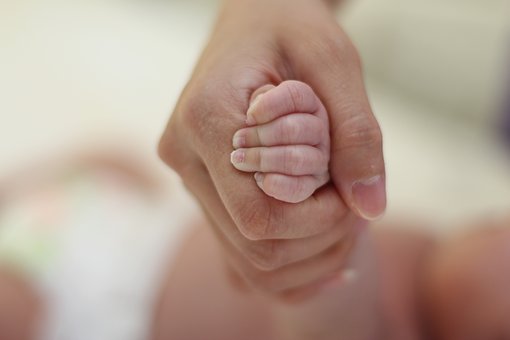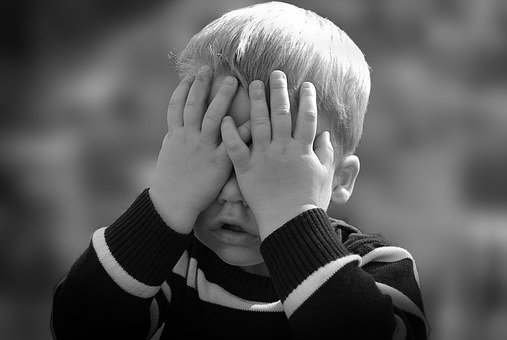Why smacking IS harmful to EVERY child!
Why smacking IS harmful to EVERY child! https://thejaneevans.com/wp-content/themes/corpus/images/empty/thumbnail.jpg 150 150 Jane Evans https://secure.gravatar.com/avatar/1b06bd036211b82cdba19b095bacdad4?s=96&d=mm&r=gGo back to your cave Dr. Pemberton
Yesterday on Facebook and Twitter several people invited me to comment on an appalling article by psychiatrist and journalist Dr. Max Pemberton in the Daily Mail.
DR MAX THE MIND DOCTOR: We SHOULD smack naughty children – for their own good
It was packed full of rubbish such as this,
Small children don’t understand so many of the complex rules that govern life and keep them safe, and it’s unreasonable to expect them to. Sometimes, a sharp slap gets the message across just fine.
Much of Pemberton’s article was deeply uninformed, his opinion was based on science from the 1930’s and I fear, but don’t know, his practice may also be from that era!
We know from behaviourist psychology that punishment can help when it comes to changing bad habits. For some, reward works; but for others, punishment is more effective.
This has been well established since the Thirties. The key thing is that it’s the behaviour, not the child, that’s punished — and when applied consistently, the child learns to modify their behaviour.
If the child is the one being smacked, and therefore scared, they ARE clearly being punished and totally unable to make such a ridiculous distinction. Chillingly, it is a distinction often used by perpetrators of domestic violence. ‘I love you, I just need you to change….then I wouldn’t need to hurt you!!’
Behaviourist psychology
Behaviourism relies on changing behaviours to get the desired response and was mostly tested on rats and pigeons in boxes. There was one awful experiment where a young boy, Albert, was repeatedly scared using a white rat. He then unsurprisingly went on to have a total fear of white rats as his brain and body survival systems became wired and primed for such fear.
An accessible summary of behaviourism can be found in Simple Psychology by Saul McLeod,
Behaviorism is concerned with how environmental factors (called stimuli) affect observable behavior (called the response)
This translates to the use of carrot and sticks, such as rewards systems, punishments/consequences, praise as being able to change behaviour. The leading scientists who developed this were Skinner and Watson. I could waffle on about this once again but its OLD science so I won’t waste your time.
Back in the 21st century
Fortunately, we now live in a time where we can use new scientific findings in all areas of daily life, our cars, medical procedures, food, clothing etc. Surely then it means we should be applying them to 21st-century science to the most important responsibility we have – raising children.
After all, technology allows us to scan live brains reacting and responding to stimuli and to see deep inside of brain systems. This affords us rich knowledge on what can create fear and toxic stress and the damage this does to the brain and body.
Living without the means of escape and with total dependency on someone more physically and psychologically developed who controls access to food and drink, comfort, heat, toileting, fun, rest, and stimulation is the daily life of a child.
If that person is mostly calm, kind and willing to help, a child can relax around them and cope well with short periods of their stress and emotional unavailability. They will develop a stress response system that can cope with life’s ups and downs without making them ill, in need of self-medication (alcohol, shopping, smoking, food, dangerous sports, excessive exercise, work obsession, technology etc.) or reduce their intelligence and make them less emotionally able, adults.
Living without means of escape and with total dependency on someone more physically and psychologically developed who controls access to food and drink, comfort, heat, toileting, fun, rest, and stimulation with someone who sometimes hits you will be VERY stressful for any of us, but ESPECIALLY a child. It can lead to toxic levels of stress.
Karr-Morse and Wiley in Scared Sick tell us,
We might think that being exposed to high degrees of stress early in our lives would inoculate us against later difficulties. But the opposite is true.
Pemberton may want to have a rethink on his cavalier attitude to smacking and shaming children
At best Pemberton is clearly of the ill-informed “I was smacked when I was a child and it didn’t do me any harm!” brigade. If we scanned his brain I wonder what it would show, or just a 30-minute conversation would undoubtedly reveal the effects of such emotional and physical hurt.
I wondered what my own mum would have done if I’d been behaving like that as a child. I knew the answer. One warning, then, if I did it again, trousers down, a slap on the back of the legs. Simple. I know it’s a cliche when people say they were smacked and they turned out OK — but I was smacked, and I did turn out OK.
My Super Nanny – carrot and stick behaviourist failures
I raised my son in the 1990’s, I began with telling him off, praising ‘good behaviour’, I smacked him twice, I used sticker charts and time in his bedroom to ‘think’. Eventually, I realised these were:
a) Mean
b) Not very effective
c) Made us both stressed and miserable
d) He responded much better if I used kindness, humour and worked with him to ‘problem solve’
If I was caring for a child now I would ONLY use d) as the science of the last 30 years has revealed so much about what creates healthy brains and bodies and what does NOT!
Long-term impact of short, sharp smacks
Bessel van der Kolk’s incredible book, the Body Keeps the Score is essential reading if you are interested in the long-term impact on mental and physical well-being of growing up with unpredictability on a drip-feed, with no means of escape,
We have also begun to understand how overwhelming experiences affect our innermost sensations and our relationship to our physical reality – the core of who we are.
Van der Kolk and many others have revealed to us that the body remembers what it has experienced and this has an impact on our automatic stress response system.
If this is of no interest. Consider for a moment that, in the same way that there is no justification for smacking an adult, least of all one you allegedly love, there is even less justification for smacking a totally dependent physically and psychologically dependent child. Support is always available.
I educated myself to stop using ‘carrots and sticks’ when raising my son BUT it took a long time. Knowing how rapidly the brain and body systems develop, I wish I had been able to find someone to speed the process up but the science was just emerging 26 years ago. Fortunately, in 2017 it is widely available and people like myself, and many others can make it accessible and applicable to daily parenting. Isn’t that a relief?
Pemberton’s most disturbing comment
I see this in young patients sometimes — those now in their late teens. They simply haven’t developed the necessary coping strategies because they have always got their own way. And I’m afraid this contributes to their mental health problems.
Wholly inaccurate, unscientific and very judgemental. Not what I would expose any child to.
It leads me to believe he lives in a deep, dark cave somewhere without access to any current academic research, neuroscience, neurophysiology, neurobiology or the internet.
The Good News
Luckily brains are able to rewire throughout life. If you have been smacking a child it is not too late as much can be done to repair the high levels of stress this will have created in them and in you.
* Start soon
* Be kind to yourself
* Get educated
* Know you did your best but that you and your child deserve a different relationship moving forward.
If we continue to think of children as being able to be trained like rats in boxes then we do them and ourselves a huge disservice.
If we trust in their goodness, the power of our love and the brain and body based benefits of offering them a compassionate connection and access to real learning when they wobble in life, we do them the greatest service possible.
Children aren’t resilient. Children are malleable.

9 comments
-
-
Jane Evans
Grateful for your comment. It is a mystery how someone who works with vulnerable people’s mental illness can seem to be so appallingly ill-informed!!
-
Jane Evans
Agree, it’s a real worry that someone who works with those experiencing mental ii-health can seemingly not be very informed about what contributes to it!!
-
-
Kerri Lawrence
Absolutely 100% spot on! I was smacked, slapped, hit with a belt etc as a child. For things that were considered bad behaviour like not liking the taste of vegetables or laughing at the dinner table. It has impacted me my whole life (and my siblings also). It is never right to use violence and intentionally inflict harm on another. Those people who say they were hit and they’re ok have not even begun to look inside and deal with the repercussions of what happened. It is there, negatively impacting them, they just haven’t realised it yet. Until you open that door and do the work it is always there, interfering with true happiness. It’s sad that people still think it’s ok, and actually WANT to inflict pain on their own children. Madness.
-
Jane Evans
Thanks Kerri for your insight. It’s one of my greatest sadnesses that anyone would promote smacking, let alone a psychiatrist who says they work with young people!
-
-
Shannon
One of the most useful lines I read as a parent of young children was ‘punishing yourself is as useful as punishing your child.’ It is never too late to start gentle and understanding parenting. Don’t beat yourself up about what you have done wrong, it will make you more stressed, make you feel like a failure and be counter productive in terms of developing a better relationship with your child. You can only go forwards, do so kindly and life will be better.
-
Jane Evans
Great quote Shannon. As you so rightly say it is all about forgiveness and moving forwards to a different relationship with our child. Thank you.
-
-
Tracy Seed
Such a clear, concise response Jane, which I absolutely concur, thanks for being such a passionate advocate with such clarity and sharing of your own personal journey.
-
Jane Evans
Thanks, Tracy. We all do what we can as we have the children at the heart of our work and lives and want parents and carers to have information that will be helpful and accurate!
-




HM
Never mind 21st century psychology, Pemberton seems uninformed about 20th century psychology. His interpretation of behaviourism is misleadingly superficial and he appears not to have even heard of attachment theory.